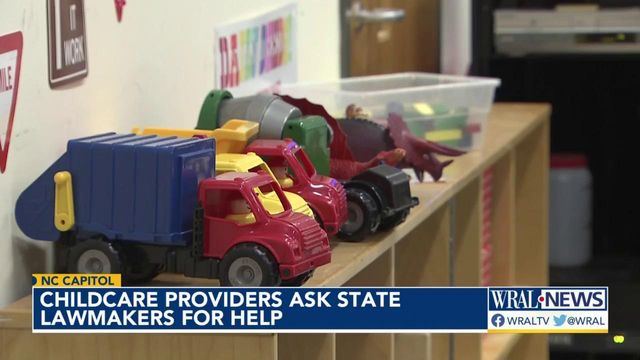Workforce crisis: Shortage of child care employees keeps parents from getting back to work
Childcare providers are asking state lawmakers for more funding and looser rules to help them keep their doors open. They say they're caught between rising costs and decreasing funding.
Posted — UpdatedChildcare providers are asking state lawmakers for more funding and looser rules to help them keep their doors open. They say they’re caught between rising costs and decreasing funding.
North Carolina’s been losing child care capacity for years. There are fewer child care providers in that state compared to 2018, but the population continues to grow.
State and federal dollars for COVID relief have helped to slow the drain, despite the pandemic, but that extra funding will dry up in the coming year.
With the cost of doing business rising faster than ever, industry leaders on Tuesday asked lawmakers for help.
Sherry Melton with the NC Licensed Child Care Association says the lack of child care is already a big problem in this state, especially in rural areas, where it’s affecting parents' ability to hold jobs.
"The No. 1 barrier right now in this state to expanding licensed quality childcare in our state for all the families who need it is a childcare workforce crisis," she said.
Melton and others are asking lawmakers to ease some of the requirements for college education for some early education teachers. She says there simply aren’t enough qualified workers available to fill those jobs.
"All of my schools have waiting lists, and the other family the other providers I talked to, they have waiting lists. It's because you don't have classrooms fully open because there are no teachers to staff those classrooms," she said.
"We are at a tipping point where we don't know if we can continue to provide access to those 4-year-olds who need care the most because they're at risk, mainly because the cost of staffing is so high," she said.
Since 2020, federal and state COVID funds have helped raise the pay for child care staff. Those raises have not kept pace with rising inflation, and that money is scheduled to dry up next year. Gatling asked lawmakers to consider extending the extra funding before it runs out and hiring gets even harder.
Gatling predicted that if child cares are allowed to fall off the financial cliff next year, more parents will have to leave the workforce, adding to the problem of North Carolina's already-tight labor market.
• Credits
Copyright 2024 by Capitol Broadcasting Company. All rights reserved. This material may not be published, broadcast, rewritten or redistributed.






